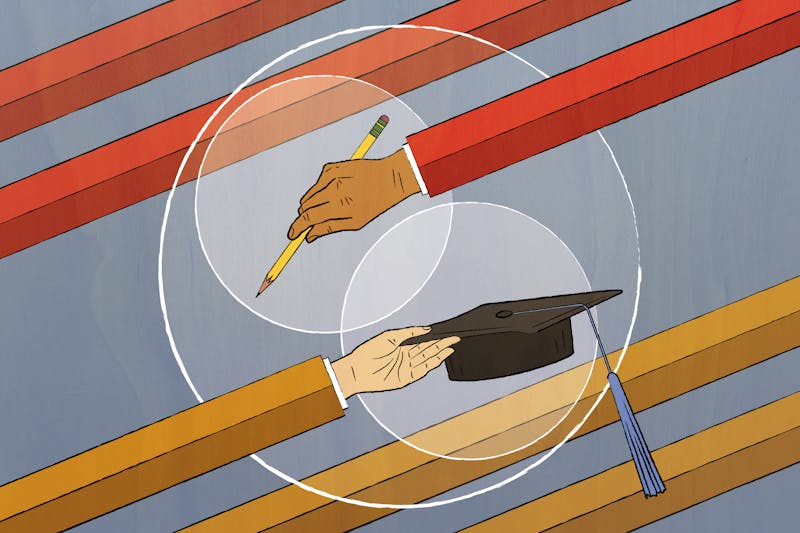Imagine this. You're 10 weeks into the semester and trying to juggle five classes, three extracurricular activities, and a vague social life. You're running on his 5 hours of solid sleep, 1 degree Celsius, and the rest of your hopes of hitting 4.0. A few hours before your 3,000-word deadline, your professor turns to you and says, “Try not to stress too much. Use your essay as a space to dream!”
The university system of pass, fail, take, retake, inherently fosters a transactional approach to education.. From the first day of class, we participate in a cycle of performance and evaluation. Success means achieving a predefined result, failure is expected to be corrected.
This deeply ingrained attitude toward education is both a product and a reflection of the larger economic system. In the United States, the commodification of education has had a pervasive impact on how we view and pursue learning.
It is a system that not only commodifies education, but also forces us to commodify ourselves. We internalize the logic of the market and cling to the idea that investing time and effort in education will pay off. Graduates carry this attitude with them into the workplace, and the cycle continues.
Actually, this is a critical perspective, but not a radical one. We are mostly aware of how the system works, and most students consciously or unconsciously adopt the way the system “works” for them. The education system is so deeply rooted in and reflects capitalist culture that change at the institutional level seems a long way off.
But I don't think it's all doom and gloom. Sure, the bigger picture may reveal such insights, but zooming in to the micro level oversimplifies it.
Education is both results-oriented and enriches the individual. The key is in your mindset.
There is a running joke among classmates: “Oh, I have to read a lot today.” The answer is “No, it's you.” obtain Let's read a lot of books today! ” This mass of wisdom I'm usually greeted with wide eyes and a knowing smile. However, I believe that something essential may emerge from this.
This calls attention to the fact that education is a privilege. This is not to make us feel bad, but to make us feel grateful. The opportunity to expand your knowledge and creativity in a community of like-minded students and scholars is rarely exploited to its fullest potential.


